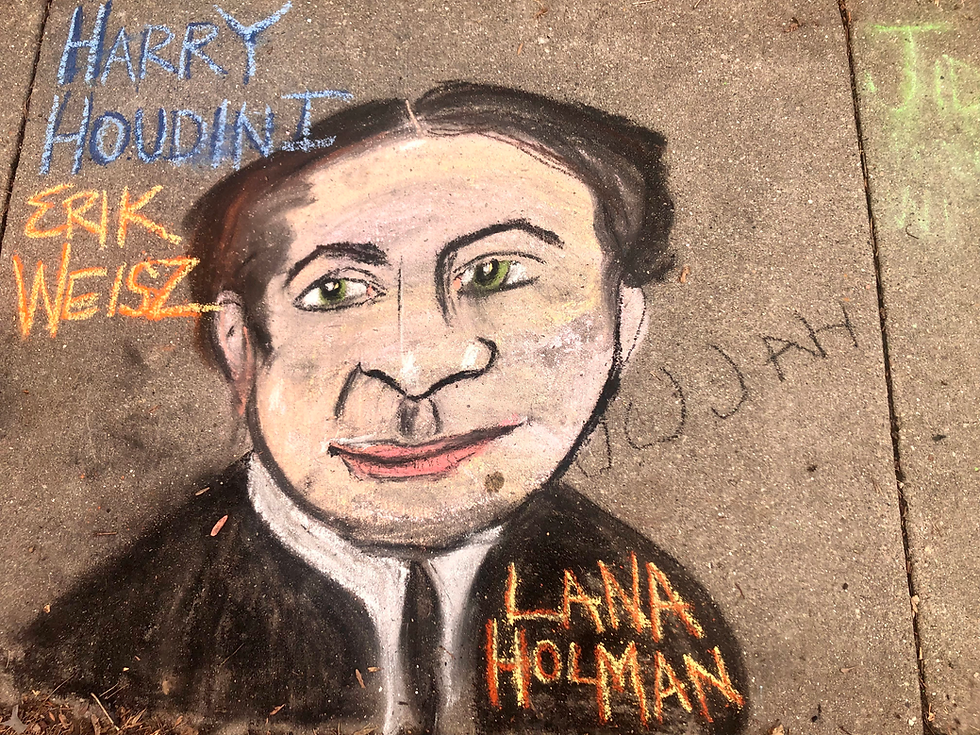Faces of Milwaukee: Spencer Tracy
- Eli
- Aug 12, 2021
- 3 min read

The life and legacy of Spencer Tracy, one of the great leading men of the "Old Hollywood" and the subject of today's portrait, might be seen differently were he working today. Like many other generational talents, his brilliance was coupled to his vices, particularly binge alcoholism and depression . Born in Milwaukee in 1900, he was a difficult child who had poor school attendance, and was sent to strict Catholic schools in an attempt to get on track. He loved movies from an early age and would memorize and perform scenes from them for friends and neighbors. He attended Marquette High School (then Academy), and spent a few years in the Navy before enrolling in Ripon College where he first began to appear on stage and with the debate team. His performances there led to a scholarship to the American Academy of Dramatic Arts in New York.
After graduation in 1923, he initially had difficulty finding roles in successful plays but eventually got noticed by a Broadway producer who cast him in a series of increasingly successful plays both critically and commercially. In 1930, he was cast as a murderer on death row in The Last Mile, receiving a standing ovation that lasted 14 curtain calls on opening night. His performance in The Last Mile drew the attention of Hollywood who were scouting theaters looking for movie talent. Director John Ford wanted him for a role, but his production company Fox was reluctant to sign Tracy as he was not conventionally attractive ("he didn't photograph well" as they said at the time). His early performances on film convinced them to hire him but he was miscast into a series of unsuccessful roles as a crook or con man. After being recast in leading roles in the early 30s, he earned critical acclaim but was still mostly unknown to the public. His career finally found success after a move to MGM Studios in 1935. He appeared in a number of serious and comedic roles, winning two back-to-back Oscars for Best Actor in 1938 for Captains Courageous and 1939 for Boys Town with 7 other nominations.
Co-stars such as Clark Gable, Humphrey Bogart and long time companion Katherine Hepburn described him the greatest actor of his generation, and he was frequently praised for the naturalism and effortlessness of his performances. Behind the scenes, he prepared intensely for roles, but engaged in long bouts of binge drinking and relied on pills to sleep and get through the day. Due to his strict Catholic upbringing, Tracy never divorced his wife despite living apart from her for most of their marriage. Hepburn, with whom he carried on an affair for several decades and who became his caretaker towards the end of his life described his internal torment in her autobiography: "What was it? ... Never at peace ... Tortured by some sort of guilt. Some terrible misery." His reliance on pills, alcohol, cigarettes, and substantial weight gain led to his hospitalization in 1963, appearing in only a small number of films after that. In 1967, he struggled to complete filming of Guess Who's Coming to Dinner and died 17 days later. Living in a time where mental health, especially for men, was a forbidden topic, Tracy was never able to get help. Although there is still very far to go, it is inspiring to see stars like Robin Williams and Dwayne Johnson speak more publicly about their own battles, and hopefully through their openness, help others get to a better mental place.



Comments